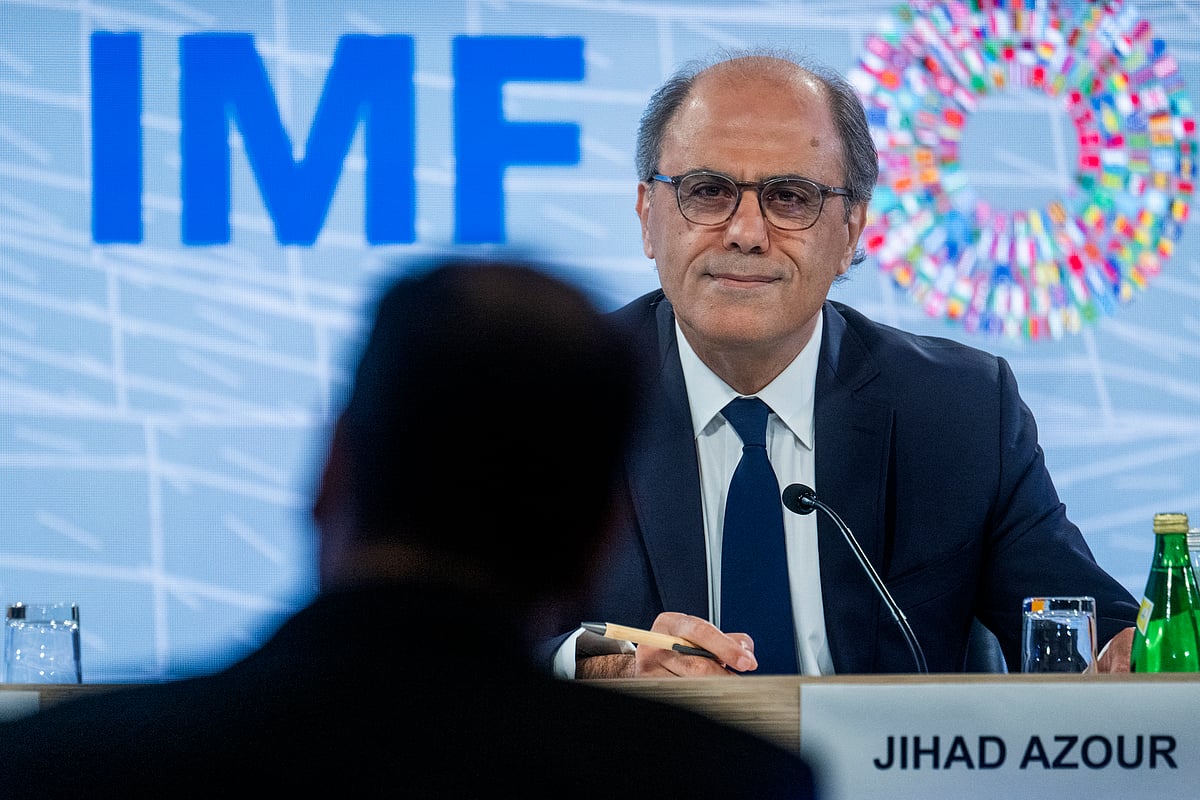IMF sees UAE among most AI-ready economies in the Gulf
IMF's Azour says investment in technology will shape the region’s next phase of growth

Dubai: The UAE is among the most prepared Gulf economies for artificial-intelligence adoption, according to the International Monetary Fund, which says the country’s investment in technology and education is positioning it for sustained growth.
“Three countries from the GCC are among the best in terms of readiness—Saudi Arabia, Qatar, and the UAE,” said Jihad Azour, Director of the IMF’s Middle East and Central Asia Department, as the Fund announced growth projections for the MENA region.
Speaking at a media briefing in Dubai, he said future investment in “technology, AI, data centres and the internet of the future” would define the next growth cycle. “Those investments are expected to yield results in terms of growth and increasing investment,” he added.
Azour noted that AI’s impact will extend far beyond technology. “AI is going to change the way we work. Forty per cent of the labour force will be affected,” he said. “Access to technology for youth, start-ups and SMEs is very important at an affordable price. Access is not only to increase growth, but also to improve inclusion, access to finance, talent, knowledge and infrastructure.”
He stressed that readiness depends on education and skills. “Investment in education and in talent will be essential,” he said. “Readiness is something that is very important to expand beyond the three countries, for several countries in the region to be able to benefit and compete.”
Diversification anchors UAE and Gulf growth
Azour said the Gulf’s resilience through recent crises reflects years of reform. “The GCC countries were able to withstand several shocks, the COVID-19 crisis, the war in Ukraine, the volatility in oil prices, and the recent geopolitical tensions. This is the result of years of structural reforms that have improved market functioning, access to finance and the labour market,” he said.
He highlighted the UAE’s strong mix of sectors. “The UAE economy has gone through strong performance, both in terms of the oil and non-oil sector, driven by good performance in services, tourism, real estate, as well as financial services,” he said. “The main driver of growth comes from the economic performance of Abu Dhabi.”
While Gulf governments remain financially comfortable, Azour urged continued prudence. “They are liquid. In the short term the impact is limited, yet we are witnessing a deterioration of the surpluses, both the current-account and fiscal surplus,” he said. “In the medium term it is very important to continue the effort to diversify revenues outside oil, anchor macroeconomic policies into medium-term fiscal frameworks, and deepen financial markets so that debt and liability management does not create instability.”
Capital-market confidence and trade shifts
Regional financing conditions remain favourable. “Markets were open for issuers from the region, and so far until the end of September issues exceeded the full year of 2024 with $48 billion,” Azour said. “Despite this resilience, countries need to be very careful about the risks. They are encouraged to reduce financing needs, address the stock of debt and maintain fiscal discipline.”
Azour said Gulf economies are also poised to benefit from shifting global trade routes and new regional alliances. “The region has diversified both its sources of imports and exports and built alliances at the regional level,” he said. Strengthening business environments, he added, will help Gulf countries attract more investment and talent.
“These are emerging middle powers that could play a greater role in sectors like AI and technology,” he said. “Pursuing and accelerating those alliances will be an important factor.”
Well-regulated systems, educated workforce key to AI future
Asked about overheating in the fast-growing AI sector, Azour said the region’s financial systems remain sound. “The financial system is well regulated with strong levels of capitalisation and buffers, which would protect it from any asset adjustment,” he said. “Education, education, education, it is very important to build the skills in the region.”
He said the Gulf’s young, tech-savvy population will be central to the transition. “More than two thirds of our population is below 30, tech savvy and has the capacity to increase their skills,” he said. “Good performance in the non-oil sector, diversification of sources of income and readiness for technology and AI are providing a solid foundation for the future.”
Sign up for the Daily Briefing
Get the latest news and updates straight to your inbox
Network Links
GN StoreDownload our app
© Al Nisr Publishing LLC 2026. All rights reserved.